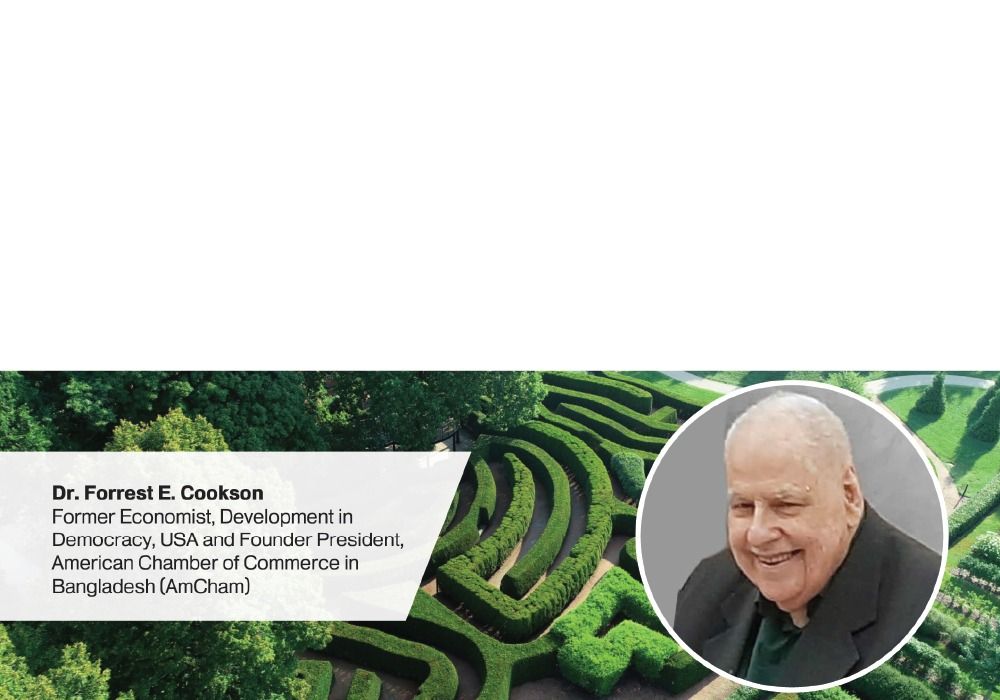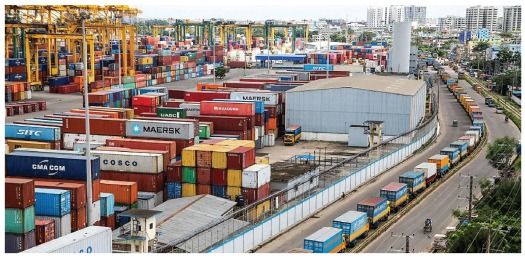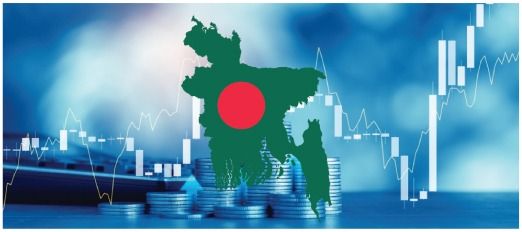![]() Admin
Admin
![]() August 17, 2025
August 17, 2025
![]() (0) Comment
(0) Comment

![]() Admin
Admin
![]() August 17, 2025
August 17, 2025
![]() (0) Comment
(0) Comment
Bangladesh faces great challenges in its efforts to restore growth to the economy and welfare to its citizens. A combination of external events and internal conflicts have resulted in a low level of economic growth, low private investment, extremely low foreign direct investment, and continuing inflation. The growth of GDP as reported by the authorities is exaggerated. The first driving force of GDP is the export level. What matters here is exports net of imports used to produce them. Taking this into account there is virtually no growth of exports [3% per annuml. The second driving factor is remittances. The increase of remittances through the banking system arises from the shift of funds passing through the hundi system to funds passing through the banking system. What is relevant for economic growth is the total value of remittances, that has changed little. The total earnings of foreign exchange adjusted for these two factors has not really increased. Investment in real terms has declined. Total driving forces are stagnant and GDP growth is lower than the official estimates that attempt to estimate production of all types of goods.

Trade:
Prospects for increase of exports are very uncertain. Changes in US tariffs will reduce the demand for clothing and the competitive position of Bangladesh is uncertain. The growing trade war between China and the United States increases the uncertainty for Bangladesh exports. Technology changes, particularly introduction of artificial intelligence, for garment production threaten low labor cost producers like Bangladesh, signaling a dark future over the next decade. The management of the exchange rate is not favorable for exports. A bold step of significant, under valuation of the Taka is required but will not take place. The grip of the IMF view of foreign exchange management, ignored by those Asian countries that achieved rapid growth, currently controls Bangladesh Bank's policy. Finally, in the absence of significant foreign direct investment no new export products will develop. FDI is limited by the uncertainty of the political situation and the economic policies.
The outlook for increased exports is very uncertain with the risks on the downside. There is no significant progress in export diversification which can only be achieved by an undervalued exchange rate. The RMG sector is caught up in a labyrinth of factors creating uncertainty, driving down the return on equity and limiting investments to raise productivity. Prospects for the RMG sector are really quite bright but the actions needed to achieve rapid growth are not being taken. Only strong actions by the Government to stop port and Customs corruption, to provide gas to the garment factories, and perhaps most important consistent, quality electricity. The gas and electricity systems are weighed down by past corruption resulting in poor quality and high costs. The RMG sector is also burdened by an unresolved process of setting wages and a changing unpredictable tax and subsidy system. Only stern and determined Government action can results in a profitable, growing RMG sector. We are waiting.

Investment:
The investment situation in Bangladesh is grim. Every indicator is stagnant or declining: Imports of building materials, imports of capital machinery, condition of the capital market, lack of liquidity in the banking system, very high interest rates for the manufacturing sector and finally the burden of past non-performing loans that limit current borrowing. Private bank leaders and the business community report that there is little interest by private companies in investment.
Government investment is limited by the low collection of tax revenue. Large government projects are really not very successful. Massive over investment in the Dhaka transport sector, large investments in a loss making railway sector, and excessive investments in power [resulting in a very large surplus over current demand levels.] The strong interference by important politicians has over the past years distorted the direction of Government investment. The use of benefit cost analysis in a disciplined way vanished long ago. International financial institutions such as the ADB and the World Bank played along with this distorted investment. Driven by their masters' to come up with projects, they turned away from infrastructure as they were unwilling to fight the corruption and invested in all kinds of projects whose impact is very uncertain. Everyone lived in dreamland.
A new Government elected by the people will probably have a program of investment in so-called public goods. One cannot be sure if the quality of selection will stand the rigor of benefit cost analysis. Government should focus on projects which will unleash private investment. Two areas where much can be done are: First an accelerated effort to computerize and resolve all disputes over land ownership; this would make the land market much more open as well as provide the basis for a progressive land wealth tax system. Second, a widespread warehouse system owned by the private sector but regulated carefully by Government resulting in the emergence of a futures market for important commodities such as rice and potatoes; creating a whole new class of assets of warehouse receipts when farmers and merchants store their commodities. The final area where a major change is needed to increase investment is to overhaul the Securities and Exchange Commission reducing its role so that it does not throttle the share market.
One should not underestimate how dangerous the present situation is with stagnating sources of foreign exchange and no growth or interest in investment by the private sector. Only a strong willed Government determined to accelerate growth of the private sector and overcoming the mistake of seeing the private businessman as the enemy of the people, will enable Bangladesh to escape from the labyrinth of dangers in which it is now entrapped.